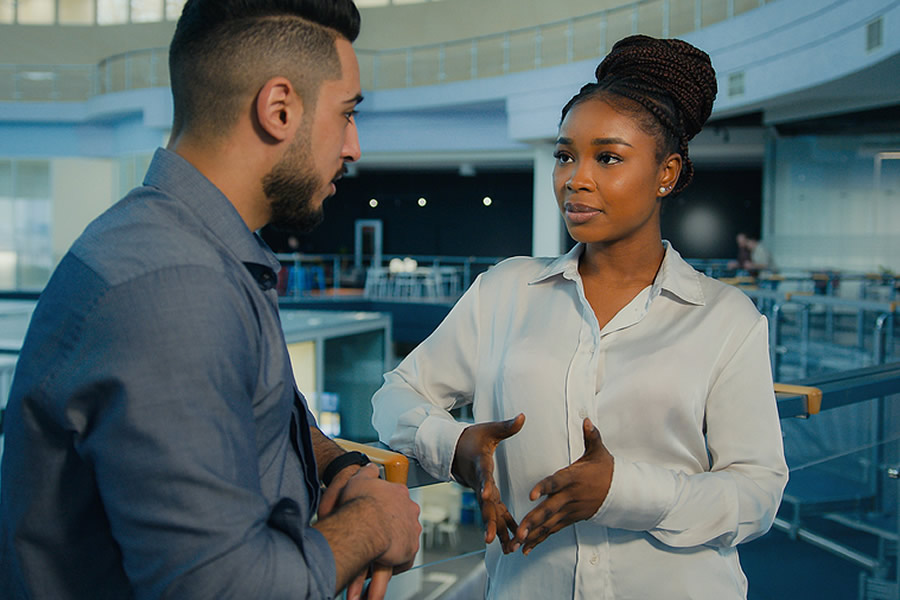
You’ve probably heard the common expression in fundraising:
Ask for money, you’ll get advice. Ask for advice, you’ll get money.
In other words, if you simply ask for money, you won’t get much more than advice. But if you ask for advice (and engage your donors in the process) you can raise a lot of money.
Unfortunately, most fundraisers have a hard time asking donors for advice. That’s because asking for advice seems too awkward and disingenuous. It’s too uncomfortable, so they just don’t do it.
What they need is a genuine reason to seek out their donors for legitimate and useful advice.
A Genuine Need to Ask Nonprofit Donors for Advice
Imagine a dynamic duo: an Executive Director and Development Director named Jen and Jenny. They’ve been working at the animal shelter for many years.
Jen and Jenny have taken countless seminars on how to raise major gifts, but something always seems to get in the way. After many years of an overcrowded and decrepit facility, the board decides it’s time for a major renovation and Jen and Jenny are thrust into a capital campaign.
A Capital Campaign Presents a Unique Opportunity for Advice
A capital campaign creates an authentic and relatively easy opportunity to ask for advice. A feasibility study is a built-in opportunity to share your early plans with donors and get their feedback prior to officially starting your campaign.
Unfortunately, most organizations outsource the feasibility study interviews and surrender this unique opportunity to engage with donors to a campaign consultant. But there’s a better way.
A Guided Feasibility Study: Your Key to Genuine Donor Feedback
At Capital Campaign Pro, we’ve developed something called a Guided Feasibility Study. It’s a far cry from DIY.
In our model, one of our experienced campaign consultants carefully guides the process — providing hours of training, coaching, and guidance before nonprofit leaders are ready to have strategic conversations with key donors. During these conversations, they seek genuine advice and feedback from potential campaign donors.
How a Guided Feasibility Study Helps
Jen and Jenny hired the team at Capital Campaign Pro and put the Guided Feasibility Study to the test. They were extremely nervous about speaking with their donors, which they hadn’t really done before. After a few months of pre-campaign work, plus two dedicated 90-minute training sessions with their advisor, they were ready to go.
The first few conversations were nerve-wracking, but they soon got the hang of it. Now Jen and Jenny are capital campaign pros!
- They have significantly increased their confidence in talking with donors and their fundraising abilities.
- They learned to lean into hard questions and not shy away from honest conversations with donors.
- They put their new skills to work during the solicitation phase of the campaign.
Best of all, they raised more than twice what they ever dreamed possible.
3 Ways a Guided Feasibility Study Transforms Fundraising
After applying this new model of feasibility study in the real world throughout the past several years, we can honestly say that it’s transformative.
- Nonprofit leaders and fundraisers are transformed into more confident, competent fundraisers. They now understand how asking for advice works and will continue to apply their new skills long after the capital campaign has ended.
- Donors are transformed into partners for the organization, providing feedback and advice throughout the campaign — not only at the beginning.
- Organizations are transformed because campaigns truly raise capacity of programs, services, and organizational infrastructure.
Do you need to have a capital campaign to ask donors for advice? No, but it sure is helpful in getting the process going.
Is it Time for a Capital Campaign at Your Nonprofit?
The reality is that campaigns are sophisticated major gift campaigns on steroids. So, if you wish your organization could really raise major gifts, it might be time to consider a campaign.
It’s important to note that you can’t have a successful campaign simply because you want to raise more money. That’s not a compelling enough reason for donors to dig deep. There must be a specific project or need to help motivate generosity and philanthropy.
If there’s no obvious reason to have a campaign, you and your team ought to schedule a ‘blue sky’ brainstorming session to discuss the next leap for your organization. If you come up with something that makes you tingle, it just might be time for a capital campaign… something you can genuinely ask your donors about.
To learn more about Guided Feasibility Studies and feasibility studies in general, click here to watch a quick 4-minute video.

I was a major donor to a nonprofit charity. I expressed interest many times to become engaged in their mission but was denied. I wanted to have a voice on the board or on a committee but was told I wasn’t qualified. Nobody even asked what my background was. I guess they’re not familiar with Diversity, Equity, and Inclusion. The executive director was very rude and unprofessional in her comments to me. I felt marginalized and dehumanized. Their board member and attorney told me that I was harassing them by showing my persistent interest in the organization. I was told that if I didn’t trust them, to take my donations elsewhere. I replied and told her that was exactly what I would do. Unbelievable, but true story!